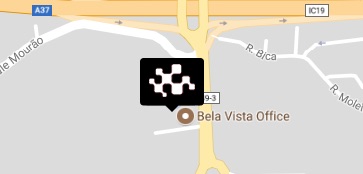Small businesses are everywhere. When you consider the most popular reasons people start their own business, like the flexibility of being your own boss, growing an idea and working towards financial independence – the popularity of rising entrepreneurs and small businesses comes as no surprise. Unfortunately, not every small business will succeed or make money. In fact, only half of small businesses will survive past 5 years.
We rounded up a few important steps to follow and questions to ask yourself when starting your own business to set a foundation for success. Of course, every business owner’s experience and path are different, but the following commonalities can be applied across different industries and markets.
Evaluate Your Position
Moving past having a good idea and noticing a gap in the market, potential business owners also need to make sure they have what it takes to run their own business. Start off with a reality check and by assessing whether or not you’re ready for the startup life.
Ask yourself these initial questions:
- Do I have the skills and traits typically found in an entrepreneur?
- Do I have enough time and resources to invest in a new business?
- Do I have an outline of the idea I want to launch?
- Do people want the products or services I’m offering?
- Have I come up with different ways to sell these products/services?
- Do I have the capital/savings/loans to turn my idea into a concrete plan?
- Do I have a team of personal or professional connections to help me?
Take a Look at Your Business Plan
Having a good business plan not only serves as a blueprint guiding you through every stage of building and managing your business, it also serves as a roadmap to continue growing it in the future. Making a solid business plan helps you understand the market you operate in and the customers you’re targeting. Business plans are also extremely important when looking for funding; investors and potential partners look for startups they feel confident will provide a return on their investment.
Sample questions to determine the strength of your business plan:
- Do I have company mission and vision statements?
- What am I offering? What is my USP?
- Is there a gap in the market my business is filling?
- Have I correctly identified my target market and audience?
- Have I effectively outlined my costs of operation?
Study & Assess Your Financing Options
Starting your own business will not be cheap, so you need to determine how you plan on obtaining funds to cover these costs. For example, do you have enough savings to cover your capital or will you need to borrow money?
Experts agree that most startups fail because they run out of money before they break even. Avoid this risk by assessing the different financing options available to you.
Questions to ask yourself:
- How much funding/capital do I need?
- What type of business financing is right for me?
- Do I have sufficient savings or will I rely on loans/investors?
- Am I qualified to get a reasonable small business loan?
- Do I have the right investors on board? Can I work with them?
- Am I comfortable with investors having a say in my business affairs?
- Is crowdfunding a realistic option to consider for my business?
Determine the Legal Structure of Your Business
When starting a new business, especially for the first time, it can feel overwhelming thinking of things like the form of ownership that best fits you. However, before you can even register your new business, you need to decide what kind of entity you want it to be. The structure you choose legally affects everything from filing taxes to personal liability in case something goes wrong.
Take a look at the following types of ownership:
- Corporation
- Partnership
- Sole Proprietorship
- Cooperative
- Nonprofit
- LLC – Short for Limited Liability Company
Other questions to ask yourself:
- What type of insurance is best for my business?
- Do I plan on having a company lawyer?
- Do I have all the licenses and permits needed to start working?
- Have I studied the tax obligations that come with this type of business?
Advertise Your Business & Effectively Reach Your Customers
Before you set up shop and start selling your product/service, you have to build a unique, effective brand. Doing so not only spreads the word about your new business but also creates anticipation and pushes customers to your doors, or website, once you launch. This means that one of the most important steps to take is building a professional website which can beat represent your business online and that customers can easily find (8 SEO Acronyms Business Owners Need To Know). You’ll also need some foundational basics, like a Logo, to use consistently across different platforms that help potential customers identify you.
Once you move past the basics, you’ll also need to create and establish social media accounts (Tips to Improve Your Social Media Presence in 2019) and keep them updated with relevant content that actively engages users online (Why Content Marketing Needs To Be Your New Priority). An effective marketing plan goes beyond brand awareness and takes advantage of the wide range of promotional tools available nowadays; Email Marketing and Promo Products are other excellent tools to communicate with customers before or after you launch.
A strong Integrated Marketing Campaign is just as important as providing a quality product or service. The team at Media Explode has been successfully providing strategy and creative design across digital, social, mobile, content and visual production channels for over a decade. Contact us today and let’s get started!










Adena Patrylak
I’m usually to blogging and i actually appreciate your content. The article has really peaks my interest. I am going to bookmark your web site and hold checking for brand spanking new information.